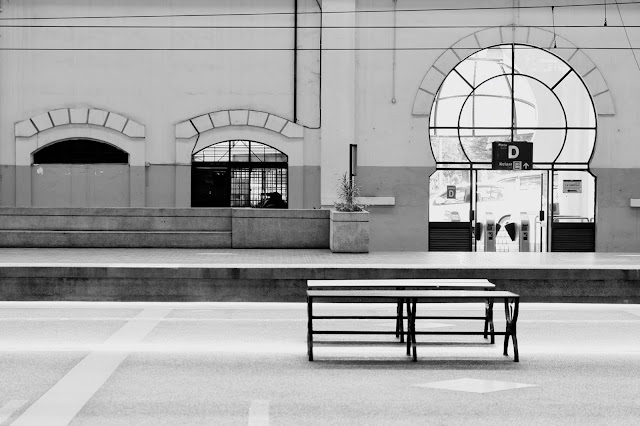I don’t know the answer. So I asked Mr AI. Below is its reply:
As a hobbyist photographer focused on street, urban, and documentary photography, here are a few things you can look forward to or work on in 2025:
• Create a Thematic Series: Develop a long-term photography project exploring a specific aspect of urban life or a particular neighborhood.
• Photo Essays: Use your documentary photography skills to tell compelling stories about current social issues or local events.
2. Networking and Community
• Join Local or Online Photography Groups: Engage with other photographers for critique, inspiration, and collaboration.
• Attend Meetups or Photowalks: Expand your network and gain fresh perspectives on urban photography.
3. Competitions and Exhibitions
• Participate in Photography Contests: Look for contests focused on street or urban photography to showcase your work.
• Plan an Exhibition: If you have a solid body of work, consider exhibiting it locally or online.
4. Skill Development
• Master New Techniques: Experiment with new styles, gear, or editing techniques to enhance your storytelling.
• Learn Video Storytelling: Documentary-style video is a natural extension of your skills.
5. Content Creation and Sharing
• Build Your Online Presence: Share your work on platforms like Instagram, Threads, or even start a photography blog.
• Create Zines or Photo Books: Self-publishing is a great way to give your projects a tangible form.
6. Document Local Events and Changes
• Capture urban transformation, social movements, or cultural events, creating a historical archive through your lens.
Would you like more tailored advice on any of these areas?
Let’s delve deeper into these areas to make your 2025 photography plans more actionable:
1. Personal Projects: Building a Thematic Series
• Identify a Theme: Think of recurring patterns in your work or interests (e.g., urban decay, public transportation, street vendors, graffiti). Choose something that excites you and resonates with others.
• Set Goals: Decide on the number of images, timeline, and how you’ll present the project (e.g., online gallery, exhibition, or zine).
• Inspiration: Study the work of photographers like Vivian Maier (street photography) or Sebastiao Salgado (documentary).
Actionable Steps:
• Spend a weekend scouting potential locations or subjects.
• Dedicate a specific day each month for project-focused shoots.
2. Networking and Community
• Photowalks: Organize or join city-wide photowalks. They’re great for meeting others while exploring.
• Workshops: Attend workshops or masterclasses in street or documentary photography. Many photographers host online sessions too.
Actionable Steps:
• Research local photography meetups on platforms like Meetup or Facebook.
• Engage with photography-focused Threads hashtags to find people with similar interests.
3. Competitions and Exhibitions
• Competitions: Look out for contests like the Sony World Photography Awards or Street Photography International Awards. These often have a street/urban category.
• Local Exhibitions: Collaborate with local art spaces or libraries for a small-scale exhibition.
Actionable Steps:
• Select your 10 best photographs from 2024 and build a portfolio.
• Bookmark competition deadlines and plan shoots accordingly.
4. Skill Development
• Editing Techniques: Learn advanced Lightroom or Photoshop techniques to enhance your urban landscapes or street moments.
• Gear Experimentation: Try using a wide-angle or prime lens for storytelling.
• Night Photography: Explore night-time urban photography to capture a different mood.
Actionable Steps:
• Enroll in an online editing course or practice new techniques through YouTube tutorials.
• Dedicate one shoot per month to night photography to build skills in low light.
5. Content Creation and Sharing
• Platforms: Focus on Instagram for visuals, Threads for short-form narratives, and even start a dedicated Facebook page for your photography.
• Zines or Photo Books: Start small by creating a digital zine through platforms like Blurb or Canva.
Actionable Steps:
• Develop a consistent posting schedule (e.g., 3 times per week).
• Experiment with Reels or Stories to showcase the behind-the-scenes process.
6. Document Local Events and Changes
• Research upcoming city projects, events, or cultural festivals and make a schedule to capture them.
• Document transformations in your city—new buildings, demolitions, or changes in public spaces.
Actionable Steps:
• Subscribe to local news for updates on events and urban developments.
• Plan regular walks to capture changing seasons or times of day in familiar places.


Comments
Post a Comment